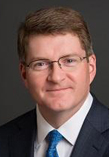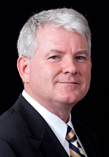© 2017 The Texas Lawbook.
By Allen Pusey
(May 23) In a unanimous decision Monday, the U.S. Supreme Court tossed out a 27-year old ruling that had allowed patent infringement suits to be filed in virtually any federal jurisdiction, effectively ending a 15-year IP litigation boom in the Eastern District of Texas.
Or maybe not.
In the much-anticipated decision in TC Heartland vs. Kraft Foods, the court ruled 8-0 (newly appointed Justice Neil Gorsuch took no part in the decision) that venue in IP infringement lawsuits is limited to only those mentioned in 28 USC §1400(b): Where the defendant is incorporated, or where it has a regular, established place of business and has infringed the patent(s) in question.
In 1988, Congress tweaked the wording of a different section, 28 USC §1391(c) to include these words: “For purposes of venue under this chapter, a defendant that is a corporation shall be deemed to reside in any judicial district in which it is subject to personal jurisdiction at the time the action is commenced.”
Though Congress left the original wording in place, the Washington D.C.-based Federal Circuit Court of Appeals ruled in 1990 that the change in language of that section, in effect, expanded the rules for filing IP disputes. And by the end of the decade, several federal districts began creating rules that, in effect, tailored so-called “rocket dockets” that accelerated the arc of often complex and technical IP litigation.
Under a plan devised by T. John Ward, then-a US District Judge sitting in Marshall, the Eastern District of Texas became one of those venues. And by 2016, roughly 37 percent of the nation’s 4,537 new patent cases were filed in the Eastern District, according to Lex Machina, a company that tracks IP litigation.
Although Marshall developed the reputation of a plaintiff-friendly venue, over time both sides of IP litigation grew to appreciate the hard deadlines and discovery limits that helped resolve highly-specialized specialized litigation. And lawyer reaction to the ruling in Heartland was both unsurprised and mixed.
Here are some of their reactions (which will be updated throughout the day):

“As far as intellectual property law practices, I think it will have a larger impact on the smaller firms and practice groups. But for firms such as Winston & Strawn, where patent litigation is a core practice, I don’t think it will have much of an impact. Patent litigation has always been a national practice. We’ve been in IP practice in Houston for many years, including a time when the Eastern District was not an active patent venue, and our practice has never been slow.”
“It seems clear that more patent cases will be filed in Delaware. But the decision will not necessarily dry up the docket in East Texas. There will likely be a flurry of motions regarding pending cases and venue. How those get decided may turn on the language not at issue in the Supreme Court’s opinion.”

“TC Heartland LLC will change very little in the land of patent litigation—especially in the Eastern District of Texas.”
“Although the Supreme Court clarified that the state of incorporation is the only touchstone for ‘residence,’ it did not address the other half of § 1400(b)’s language –i.e., that venue also lies where the defendant ‘has committed acts of infringement’ in the district. This specific jurisdiction language is often the basis of venue in the Eastern District of Texas over foreign businesses who don’t have their state of incorporation in Texas and don’t have their headquarters in, say, Collin County. While defendants may take a run at transferring their cases as if this language did not exist, those are unlikely to be successful. But they will generate some legal fees for defense counsel and burden the courts for a period of time. In the end, the much anticipated Heartland opinion looks like a hollow hope.”

“The Supreme Court took the title of ‘Patent Litigation Hotbed’ away from the Eastern District of Texas and awarded it to the District of Delaware.”
Wasif Qureshi, Patent Litigation Partner at Jackson Walker (Houston office)
“This ruling represents a sea change for patent litigation across the country, not just in East Texas.

Beyond that, I expect at least in the short term noticeably fewer new patent suits. There will be a natural hesitance to file in unfamiliar jurisdictions or in jurisdictions that are “home” to potential defendants, especially where those venues are perceived to be less friendly to patent plaintiffs.

“The most likely outcome of TC Heartland is that plaintiff will shift from suing domestic corporations that ‘make’ a patented invention to the entities within the distribution chain that use, sell, or offer for sale the patented invention, and have a ‘regular and established place of business’ in the preferred district.
“Apple has multiple stores in the Eastern District of Texas, so the ruling will not affect it. So do most major telecommunication providers and retail stores. Similarly large foreign corporations making products accused of infringement won’t be affected.”
“The big loser in today’s ruling is not patent trolls or NPEs seeking small settlements, whose business model works equally well in any district, but smaller defendants with less resources to defend case and would not have been sued except for this case, and large corporations seeking to protect their intellectual property from competitors. Previously the broad scope of patent venue meant that they could file either in their home courts or in courts with expertise in patent cases (Whirlpool, for example, files all its cases in EDTX). Now they must either sue defendants in the defendant’s home court, or sue multiple distributors or retailers in separate cases in different courts.”

“The gloom and doom predictions for the East Texas Chamber of Commerce is premature. It is hard to know the impact of this decision. I think we will certainly see a reduction in the cases that will remain in the Eastern District, but there is actually, in the near term, going to be an increase in litigation work as parties fight over venue. The plaintiff’s bar in the Eastern District is very creative. Rumors of the ED’s death are greatly exaggerated.”
Michael Hawes, Baker Botts Houston-based IP Partner
“The TC Heartland decision will impact the Eastern District of Texas with some patent cases being dismissed, but certain companies will feel the effect much more than others.”

“Even for the manufacturer without retail places of business, their customers will often be subject to a patent case in the Eastern District of Texas and the manufacturer may want to defend those customers. We may see several disputes in the Eastern District of Texas about whether a case against a customer should go forward when a case was later brought by a manufacturer in their home court. We likely will also see many courts deciding what counts as a “regular and established place of business” in the context of patent cases as lawyers get creative in identifying such ‘places.’ ”

“In the main, this decision is a blow to patent holders, who will no longer have broad latitude to bring suit in their preferred forum. In addition, the decision will confound a plaintiff’s effort to sue multiple defendants in the same forum. At the same time, in industries where there is an incentive to speed the outcome of patent litigation, the decision may lead to delay if patent holders seek to consolidate multiple actions into an MDL and to an increased risk of inconsistent decisions if multiple suits over the same patents proceed in several different forums.”

“It [TC Heartland] will certainly have an impact on the manner in which plaintiffs seek to establish venue. For many cases, the second clause of the venue statute will become the focus. That clause permits venue ‘where the defendant has committed acts of infringement and has a regular and established place of business.’ There hasn’t been a lot of recent law on this issue, and it will be interesting to see how courts evaluate the facts and circumstances of the cases to determine if venue is proper under this part of the statute.”

“This decision could well have far-reaching and, possibly, unintended consequences. It will be interesting to see if national law firms rethink their business strategy of concentrating intellectual property litigation resources in Texas as a result of this decision. And surely, in the future, the local counsel gravy train will pull into the station at Marshall, Texas with much reduced frequency. Other venues, such as the currently corporation-friendly State of Delaware, may soon be inundated with an unanticipated deluge of patent infringement suits washed out of the Eastern District of Texas.”

The TC Heartland decision represents a remarkable turn of events, orchestrated and argued at the Supreme Court by the same lawyer who orchestrated and argued the sea change in the law of obviousness in KSR. The impact this time may be even greater—both nationwide and most significantly in the Eastern District of Texas.
As the TC Heartland Federal Circuit panel explained, the venue issue in the case had been “firmly resolved” by “settled precedent for over 25 years.” That unanimous panel even found Heartland’s argument about the venue statute to be “utterly without merit or logic.” It seems a unanimous Supreme Court disagreed. Such a stark and comprehensive difference of opinion from one set of federal judges to another is itself remarkable. So it’s no surprise that this change wrought by the highest court–back to patent venue law as it existed before Judge Ward and the glory days of patent litigation in the Eastern District of Texas–will be a big deal. Judge shopping just became a lot more difficult for patent plaintiffs.
Patent litigation in the Eastern District will by no means disappear, but it will decrease greatly. Big companies headquartered in Plano or other Eastern District cities, or incorporated in Texas, will continue to be sued in the district. Retailers and others with “a regular and established place of business” in the district likewise do not have a get-out-of-court-free card.
Srini Chakravarthi, Ph.D., Partner at Slater Matsil LLP (Dallas)
“Defendants accused of infringement in the Eastern District that have local outlets/stores in the Eastern District likely will not be able to seek a transfer because venue may be proper even under the narrower venue requirement. On the other hand, many manufacturers of high-tech products/software companies do not have any regular and established place of business in the Eastern District. These defendants are the most likely to seek transfers to districts deemed more favorable to them (or at least less favorable to patent owners). On the whole, we expect defendants will seek a transfer of venue in around half of the pending cases following Monday’s decision. This has the potential for major ramifications.”
© 2017 The Texas Lawbook. Content of The Texas Lawbook is controlled and protected by specific licensing agreements with our subscribers and under federal copyright laws. Any distribution of this content without the consent of The Texas Lawbook is prohibited.
If you see any inaccuracy in any article in The Texas Lawbook, please contact us. Our goal is content that is 100% true and accurate. Thank you.
